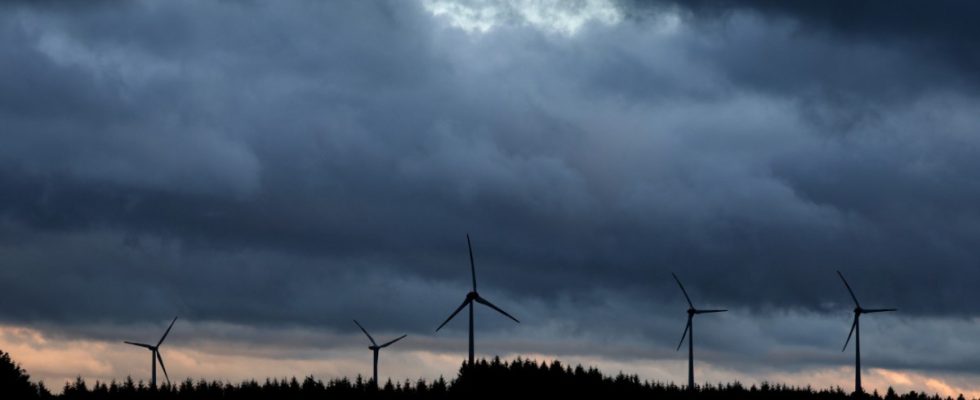A new report sees no legal hurdles for the direct allocation of forest areas by the Bavarian State Forests (BaySF) for accelerated wind power expansion in Bavaria. “A “direct award” of BaySF land to local communities represents a competition-neutral act that would be permissible even if BaySF were to have a dominant market position with regard to wind energy areas,” says the report by the law firm Assmann Peiffer presented on Monday in Munich. The clients were the Greens in the state parliament. The state forests objected.
The Greens called on Economics Minister Hubert Aiwanger (Free Voters) and the Bavarian State Forests to stop the current practice of tenders and return to the long-standing practice of direct awarding with municipalities. “The course in Bavaria must finally be set in full favor of wind energy,” said the parliamentary group’s energy policy spokesman, Martin Stümpfig. The decision in the supervisory board of the Bavarian State Forests must be made immediately, then new projects will no longer be put out to tender from now on.
However, the state foresters do not believe that waiving tenders is a feasible option. “Every municipality knows from its own experience that tenders in the public sector are necessary and completely normal,” said a spokesman for the company in Regensburg. The Greens’ newly proposed direct award to local communities, which would then then carry out tenders, is “legally and practically impossible to implement”.
The Green Party’s accusation that there is no citizen participation in the selection process for state forests is incorrect. The municipalities could demand citizen participation models of up to 100 percent. Since spring 2023, the tendering principle has applied to state forests; in practice, from the perspective of critics, this means that the municipalities are largely left out of the development, project planning and operation.
For Stümpfig, the lost referendum in the Mehring wind farm near Altötting is a good example of the undesirable development that the tendering practice brings with it. Broad anchoring, financial participation and active participation in the development of projects with the municipality are necessary in order to receive the appropriate support.
According to the report, two points must be met for “direct awarding” to be legally permissible: the local community is not allowed to operate the wind turbine itself and thus enter into competition with project developers; on the other hand, the community must comply with applicable competition and procurement law when selecting project developers observe.
In order to further accelerate the expansion of wind power, the Greens, in addition to a nationwide “Pro Wind Power” campaign, once again called on the state government to oblige all 18 Bavarian planning associations to designate 1.8 percent of their association area as priority areas by July 1, 2025. In the case of the wind farm in Altötting, early regional planning could have shown where locations in the region outside of forest areas were suitable for wind power.
Furthermore, expansion must also be promoted outside the forests. “In principle, wind and forests are well compatible with each other, but local acceptance suffers if only forest areas are specifically considered for expansion,” says Stümpfig. In order to improve planning, a wind power coordination team is needed that includes representatives from all ministries involved.

